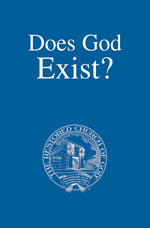 Getty Images
Getty Images
Article
Developing your media literacy will help you better understand what is occurring in the world today.
Learn the why behind the headlines.
Subscribe to the Real Truth for FREE news and analysis.
Subscribe NowWar dominates the news. Battlefield reporters tell heart-wrenching stories of prisoners, executions and women and children starving as soldiers defend their homes. The media pushes for the United States to do something.
This may sound like 2022, but this is actually describing the Cuban War of Independence in the late 1800s.
America eventually decided to get involved—the USS Maine arrived off the coast of Cuba’s Havana Harbor as a show of force. But a fiery explosion sunk the ship and killed 268 of the 355 Americans aboard.
Papers alleged the enemy sunk the ship with torpedoes and bombs. Headlines screamed “Remember the Maine!” and “Spanish Murderers!”—inflaming public opinion. The U.S. declared war on Spain the month after the Maine sank.
William Randolph Hearst and John Pulitzer, two giants of the news business, pushed this story to sell papers. While the stories were based on the information available at the time, they tended to be exaggerated for effect. The first “media war” had begun. (Decades later, naval investigators concluded the explosion was likely caused by a fire onboard, not sabotage.)
In the years prior, newspapers had begun printing cartoons in color and half-tone photographs. The ability to see the news rather than just read it made these stories nearly leap off the page. Sensationalized headlines and bold fonts added to the impact of the images. According to W. Joseph Campbell, professor of communication at American University in Washington, D.C., this also involved “an inclination to take an activist role in news reporting.” From this emerged the phenomenon that became known as “yellow journalism.”
Sounds like today, right? Yellow journalism is alive and well in the modern world, most often in the form of “fake news.” And it is far more pervasive because of the internet. Each day brings a multitude of developing stories, with countless “activists”—news organizations, commentators and social media content creators—presenting their view of what happened.
Such entities spread the truth as they see it, or more accurately, as they want you to see it. Intermixed in all of this is solid, quality reporting, showing you what is really going on in the world. The deluge of information makes finding objective truth nearly impossible. This is even more challenging when a story turns political.
People want to believe what they hear is entirely accurate, and purveyors of slant, sensationalism and outright falsehoods use this vulnerability to promote misinformation—incorrect or misleading information.
Young people can be susceptible to this due to a lack of life experience to discern when someone is lying. Older people, while they can still be vulnerable, grew up in a generally more trustworthy society.
Jesus Christ proclaimed that “the truth shall make you free” (John 8:32). But, in a world full of misinformation and even disinformation—misinformation with the intent to deceive—how can anyone today know the truth of a matter?
Think of developing your ability to find truth in the news as “media literacy.” Just as literacy includes reading and understanding the written word, media literacy involves consuming media and parsing it for meaning and accuracy.
The apostle Paul told the church in Thessalonica to “prove all things; hold fast that which is good” (I Thes. 5:21). While this primarily applies to Bible doctrine, you can also use this verse as a guiding principle to what you read and see in the news.
Yet digging out the truth of every story, article, book, documentary or anything else would take more time than anyone has—you will never reach the truth about absolutely everything. But you can ensure that you are not led astray into wrong thinking.
God wants you to correctly understand what is happening in the world today. We will look at basic tools for developing your media literacy skills. They will help you cut through the noise of misinformation.
Hone Your Analytical Skills
First, learn to ask questions. Anything true can stand up to sincere questioning, while media designed to hide the truth falls apart under scrutiny. Make sure your questions pursue the truth behind the story rather than simply seeking to justify a position you already hold.
When you read a story, listen to a podcast or view a cable news program, ask questions about the presenter’s intent. What was their goal with this story? Why did they create it, and what do they want me to think as a result of consuming it?
While you cannot read the author’s mind, asking questions like these forces you to prosecute the motives involved. Once you gain an understanding of what the author wants you to think, then ask, “Why do they want me to believe this?” Good media is thoughtfully produced and exists for a positive reason such as shining a light on an important topic that has been largely overlooked. Try to determine what the reason is behind the article, video or podcast. It helps to understand that the story has more depth than what you see at face value.
Most news outlets also have an inherent slant. Some more, some less. Take the time to research and evaluate your favorite ones. Resources like AllSides, Ground News, or Media Bias/Fact Check can help determine which way a news company leans and how trustworthy they are. These third parties rank news outlets on political lean, factuality versus opinion, and analysis. Primarily visiting news sources you know you can rely on becomes a shortcut to fact-filled, trustworthy stories.
Well-written stories from professionals trained to report and interpret the day’s events usually have some analysis that can bring clarity to a murky story. However, too much analysis or opinion can distort or even outright ignore facts that may not fit a narrative. You cannot get a clear and factual view from a story with lopsided reporting or analysis.
Make it your goal to find stories with significantly more facts than opinions or analysis. Opinions and analysis can bring a fuller understanding of events, yet they tend to focus on details and facts from the presenter’s point of view.
Since nearly every organization has political leanings, strive to look at the news from the left, the right, and a center point of view to best understand a story.
If your preferred news organization leans one way, find one that leans equally the opposite way and another that is more evenly balanced. If you already read news from a reasonably neutral source, find reliable sources that present viewpoints from the left and right. Even though you probably will not agree with everything said, you will be better informed and have a deeper understanding from knowing what the “other side” thinks.
As the world gets more polarized between liberals and conservatives, you should strive for a balanced news diet. While partisan headlines are salacious and juicy, they tend to be full of empty calories. Ultimately, they will pull you away from balanced, logical thinking. They will pull you away from the truth.
Think Before You Act
Most people consume their news online, which makes it easier to find, read and share stories. Take a close look at what the headline is really saying when you come across a story. Does it sound too fantastic to be true? Does it sound designed to get you to click on it only to redirect you to something else entirely?
A lot of study goes into the type of headline that will get people to click. Publishers need to sell your eyes to advertisers, so they craft intriguing titles to get you to load their pages. Learning to recognize so-called clickbait titles strengthens your media literacy.
But even reputable sources with good articles know how to get your attention with a headline. News organizations know that many do not read more than the titles of articles online, so they craft headlines that grab your attention but do not always accurately describe the story.
Sometimes a title even sets you up to think the article has one point of view, but reading it actually dismantles those arguments. Headlines can be deceptive, so you must read the whole article or watch the entire video and then look for corroboration from other sources.
Researching a story to know what happened requires effort—it is much easier to mindlessly hit “share” without doing due diligence. But you can be encouraged by the Bible example of the Bereans, who, when they heard the apostles’ preaching, “received the word with all readiness of mind, and searched the scriptures daily, whether those things were so” (Acts 17:11).
They heard two “newscasters” announcing a gospel they had never heard before. When the Bereans researched this news and corroborated it with the Bible, “many of them believed” (vs. 12). They did not just hear the title of the speech and repeat it to others without thoroughly digging into what they heard and proving it. This effort made them “more noble than those in Thessalonica” (vs. 11).
Likewise, with news and current events, be sure to search widely before drawing conclusions.
Proving the Truth
The yellow journalism of the past was dangerous for those who heard it. It contributed to armed conflict. The Spanish-American War and the Philippine-American War that came from the aftermath of the sinking of the USS Maine left over 250,000 military and civilians dead. The fake news of today can be just as perilous.
While you may not be led by a biased story to take up arms against another country, believing falsehoods will produce a skewed view of the world. Left unchecked, this can lead to bad decisions and unbalanced personal behavior. You must consciously, continually choose to seek truth. But first, you must define what truth is. This applies to truth in the news and, more important, truth in all things.
Jesus Christ said the Word of God—the Bible—is truth (John 17:17). This is a bold statement. Can you prove that God exists? And if so, can you prove that the Bible is His Word and is truth?
Yes, you can.
Our free booklet Does God Exist? answers the first question. Another free publication, Bible Authority...Can It Be Proven? shows you do not need to accept the Bible on blind faith—its veracity is provable. Only after proving that the Bible is true can you really understand what is behind the news.
The Real Truth is here to help. This magazine seeks to restore plain understanding by examining world events through the lens of the Bible. We strive to rise above political arguments and present the truth from God’s perspective.
As you practice the tools we have examined, you will strengthen your media literacy. You will develop a better understanding of the world. You will be able to “prove all things” and “hold fast that which is good” in all the media you consume.



